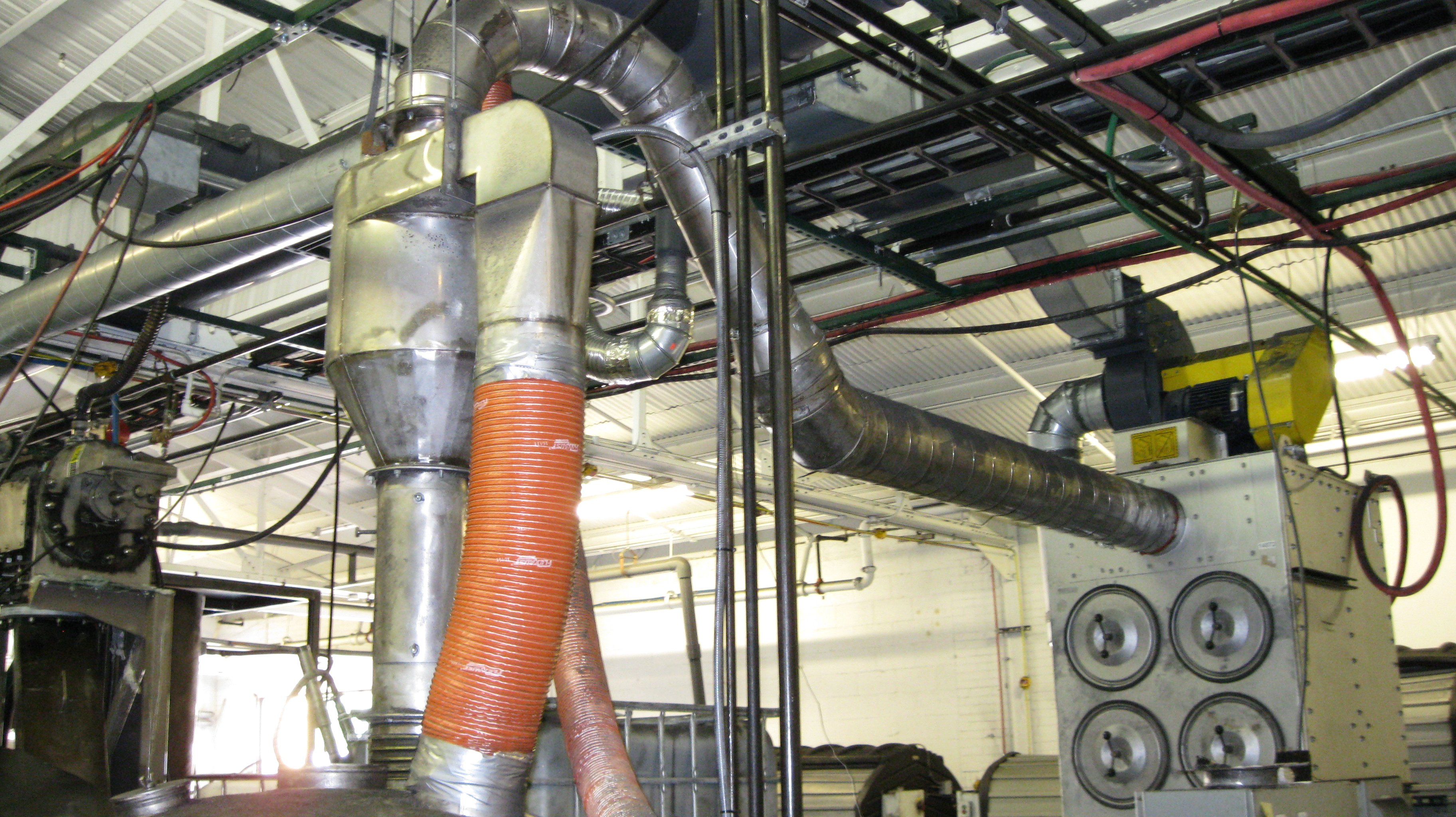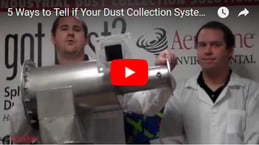Many dust collectors spend their time operating far below their potential. Whether the system was designed incorrectly, the process has changed, slow maintenance, or a combination of these, the dust collector isn’t operating at its finest. One possible solution is to install a pre-filter before your dust collector to help your dust collector to be all it can be!

The following are some signs that your dust collector isn’t operating up to par and you should look at installing a cyclone pre-filters
Filter Collectors (baghouse, cartridge collector, HEPA filters, etc.)
- There is a high pressure drop across your filters. This is caused by the dust building up on the filters and not being cleaned off fast enough. The high pressure drop causes the fan to pull less air to compensate, thereby letting more dust out on to the shop floor.
- Filters are being replaces too fast! The most common filter failures are by developing holes or plugging up. Both failures are tied to high dust loadings.
- One of the ways holes develop is filter cleaning. Pulse-jet dust collectors use high pressure air blown down through the center of the filter to expand the filter off its support structure. When the pressure disappears the filter returns to its normal size, causing the top layer(s) of dust to fall off the filter. This regular expansion and contraction will cause holes and tears in the fabric, which then let unfiltered air and dust through the unit.
- Plugging of the filters happens with “Tough” dust or a deficiency of cleaning of the filters. As the filters plug up, the removal efficiency will actually get better because very little air will get through, but this will cause dust to escape from the pickup points as less and less air is pulled through the system. So the dust collector system will not be doing the job it is supposed to do.
- Valuable product or raw material is being disposed in the dust collector waste due to contamination. As stated above, filters build up dust layers to provide the removal efficiency. Those filters will retain the material over time. If the material is valuable, this can be a lot of money that is going to waste. Pre-filters will allow the material to be collected and used in the process or product before it can be contaminated in the filters.
Wet Scrubbers
- Do you have a high cost of water treatment and disposal of the scrubber blowdown? When wet scrubbers capture particulate, slurry is formed. This slurry will then have to be disposed. It will often be sent to a water treatment plant. The water treatment plant might be dedicated to the facility or municipal. Either way, additional costs are added to treat the slurry before it is disposed of or reused. These costs are usually much more than disposing of dry material. One reason being that dry material weighs much less because there isn’t any water added and the other being that regulations prevent slurries from being put into landfills, etc. A pre-filter removes a portion of the material before it is put into slurry, thereby saving costs on waste water treatment.
- Similar to above, since wet scrubbers form slurries, any valuable material collected in the wet scrubber will be in that slurry. So unless the desired state of the material is within the slurry, it will have to be processed to make it useful. This means additional steps (and expense) are required to recycle the material. A cyclone pre-filter removes the material dry, before it is in slurry, thereby saving costs.
So before you decide to purchase a new dust collector, look into the benefits of installing a cyclone pre-filter. You just might save yourself money!
5 Signs Your Dust Collection System Needs a Pre-Filter

Watch the video from the Dust Efficiency Clinic discusses how using a pre-filter will optimize your dust collection system.
To learn more about which dust collector, please contact our experts at 440-543-7400 or visit our website: www.dustcollectorhq.com.
To improve efficiency and safety, there is no substitute for an on-site inspection by an experienced expert. Click below to start with a free 20-minute phone consultation by clicking the button.


